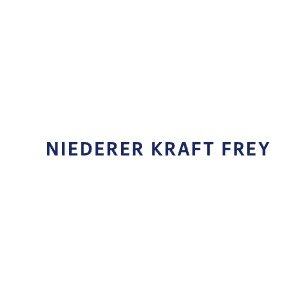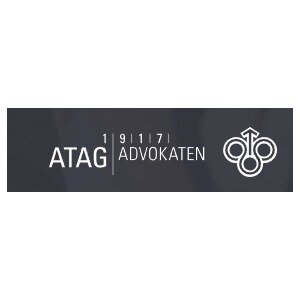Best Mining Law Lawyers in Switzerland
Share your needs with us, get contacted by law firms.
Free. Takes 2 min.
Or refine your search by selecting a city:
List of the best lawyers in Switzerland
About Mining Law in Switzerland
Mining law in Switzerland is a specialized area of law that governs the exploration, extraction, and processing of mineral resources within Swiss territory. Mining activities in Switzerland are relatively limited compared to some other countries, mainly due to the country’s geographical features and environmental priorities. The legal framework for mining is established at both the federal and cantonal levels, with cantons holding significant authority over permitting and regulation. Key concerns addressed by mining law include granting mineral rights, environmental protection, safety standards, land use, and commercial arrangements related to minerals and mining operations.
Why You May Need a Lawyer
Legal assistance is often crucial in mining matters due to the complexity of regulations and the high financial stakes involved. Here are some situations where consulting a lawyer specializing in Swiss mining law may be necessary:
- Applying for exploration or mining permits and navigating bureaucratic processes.
- Ensuring compliance with environmental protection regulations.
- Negotiating land use agreements or resolving disputes over land access or ownership.
- Drafting or reviewing mining contracts, joint ventures, or investment agreements.
- Managing liability and insurance issues related to mining operations.
- Responding to enforcement actions or administrative penalties issued by authorities.
- Assisting with mergers, acquisitions, or the sale of mining assets.
Local Laws Overview
Swiss mining law is defined primarily by the Federal Constitution, federal acts, and cantonal regulations. The most important aspects include:
- Ownership of Mineral Resources: In Switzerland, mineral resources belong to the canton, which grants exploration and extraction rights to private entities or companies through licenses and concessions.
- Permit Process: Obtaining a mining or exploration permit involves detailed applications, technical and environmental studies, and public consultation. Each canton has its own procedures and requirements.
- Environmental Protection: Activities are heavily regulated to protect the Swiss environment, including strict requirements under the Federal Law on the Protection of the Environment. Environmental impact assessments (EIA) are typically required.
- Safety Standards: Operators must adhere to workplace safety regulations, often coordinated with both federal and cantonal labor authorities.
- Land Use and Compensation: Mining often conflicts with other land uses such as agriculture, forestry, or residential zones. Swiss law sets out procedures for compensation or expropriation if needed.
- Taxes and Royalties: Cantons usually levy royalties or fees for extraction privileges, based on the volume or value of materials extracted.
- Closure and Rehabilitation: Operators must provide guarantees for post-mining restoration of the site.
Frequently Asked Questions
What minerals can be explored or mined in Switzerland?
Switzerland has relatively limited mineral resources compared to other countries, but mining is permitted for salt, gravel, sand, stone, and some metals, depending on the region.
Who owns the mineral rights in Switzerland?
In general, mineral rights belong to the canton rather than the federal government or private landowners. Individuals or companies must obtain permits or concessions from the canton to explore or extract minerals.
How do I apply for a mining or exploration permit?
You must submit an application to the relevant cantonal authority, which will assess your technical capacity, environmental plan, and financial guarantees before granting approval.
Are environmental impact assessments required for mining projects?
Yes, most mining projects require a comprehensive environmental impact assessment to ensure compliance with environmental protection laws and to address the potential impacts of the operation.
Can foreign companies obtain mining rights in Switzerland?
Foreign companies can apply for mining rights, but must comply with Swiss regulations and may face additional scrutiny regarding ownership and control structures.
What taxes and royalties are applied to mining operations?
Royalties and fees are typically set by the canton and depend on the type and volume of minerals extracted. Corporate taxes also apply to companies operating in Switzerland.
Is public participation included in mining permit procedures?
Yes, public consultation is an essential part of the permitting process, and local residents can review proposals and submit objections or comments.
What obligations do mining operators have regarding site restoration?
Operators must provide a detailed plan and financial guarantees for restoring the site after mining has finished, as required by law to minimize environmental damage.
What happens if there is a dispute over land access for mining?
Disputes are usually resolved at the cantonal level, either through negotiation or, if necessary, through administrative or civil court proceedings.
How long does it take to obtain a mining permit?
The timeframe varies depending on the canton, the size and complexity of the project, and the results of the public consultation and environmental review processes. It can take several months to a few years.
Additional Resources
If you need more information or legal guidance about mining law in Switzerland, consider consulting the following resources:
- Swiss Federal Office for the Environment (FOEN) for environmental regulations and EIAs.
- Cantonal authorities responsible for natural resources and mining permits.
- Swiss Mining Association, which represents the interests of the mining sector in Switzerland.
- Swiss Bar Association for locating lawyers specialized in mining and natural resources law.
Next Steps
If you need legal assistance with a mining law issue in Switzerland, it is advisable to take the following steps:
- Clearly identify your legal question or concern, such as permit application, contract negotiation, or regulatory compliance.
- Gather all relevant documents such as title deeds, permit applications, environmental reports, and correspondence with authorities.
- Contact a lawyer or law firm with expertise in Swiss mining law and, if possible, experience with the relevant canton.
- Arrange an initial consultation to discuss your case, explore options, and understand potential timelines and costs.
- Work closely with your lawyer throughout the process to ensure compliance and achieve your objectives efficiently.
Understanding Swiss mining law can be challenging, but qualified legal counsel can help protect your interests and ensure that your mining project proceeds smoothly and lawfully.
Lawzana helps you find the best lawyers and law firms in Switzerland through a curated and pre-screened list of qualified legal professionals. Our platform offers rankings and detailed profiles of attorneys and law firms, allowing you to compare based on practice areas, including Mining Law, experience, and client feedback.
Each profile includes a description of the firm's areas of practice, client reviews, team members and partners, year of establishment, spoken languages, office locations, contact information, social media presence, and any published articles or resources. Most firms on our platform speak English and are experienced in both local and international legal matters.
Get a quote from top-rated law firms in Switzerland — quickly, securely, and without unnecessary hassle.
Disclaimer:
The information provided on this page is for general informational purposes only and does not constitute legal advice. While we strive to ensure the accuracy and relevance of the content, legal information may change over time, and interpretations of the law can vary. You should always consult with a qualified legal professional for advice specific to your situation.
We disclaim all liability for actions taken or not taken based on the content of this page. If you believe any information is incorrect or outdated, please contact us, and we will review and update it where appropriate.
Browse mining law law firms by city in Switzerland
Refine your search by selecting a city.















